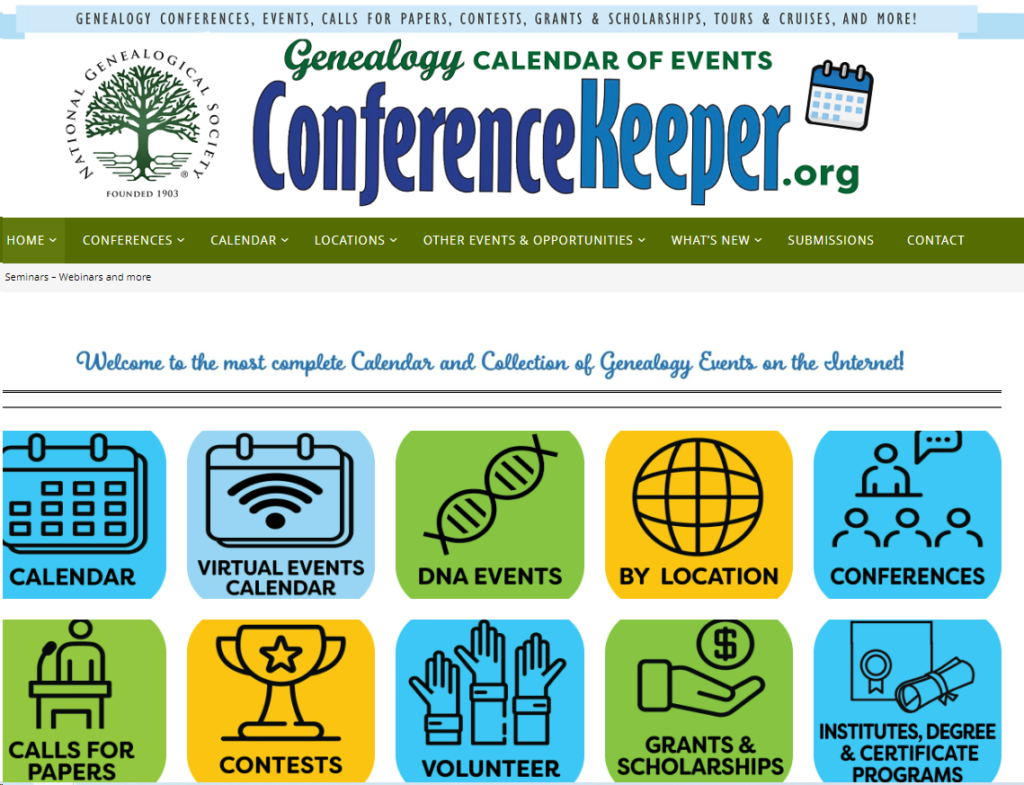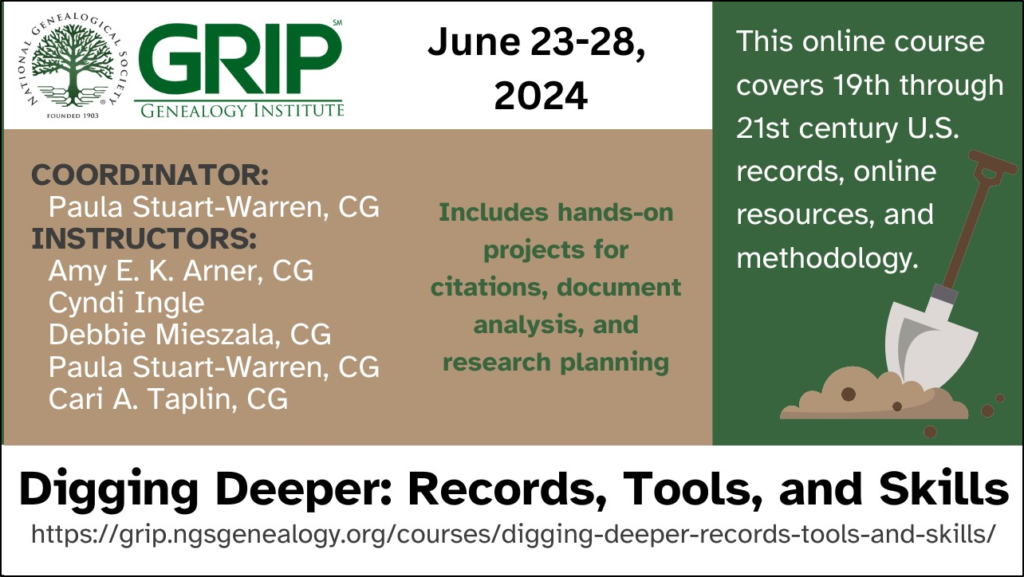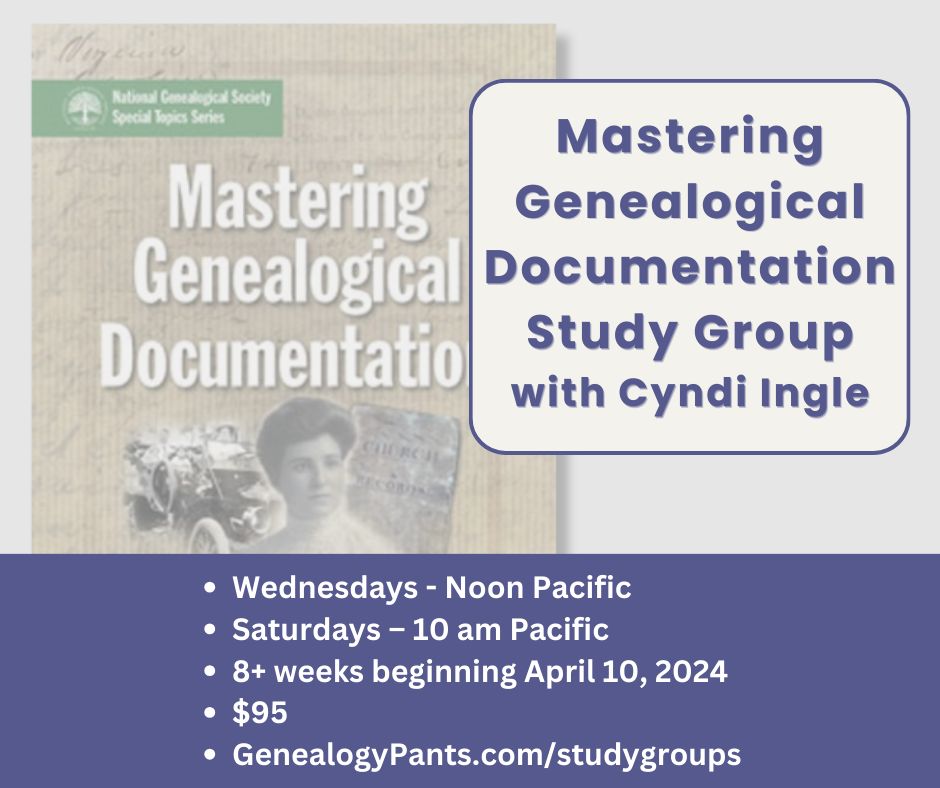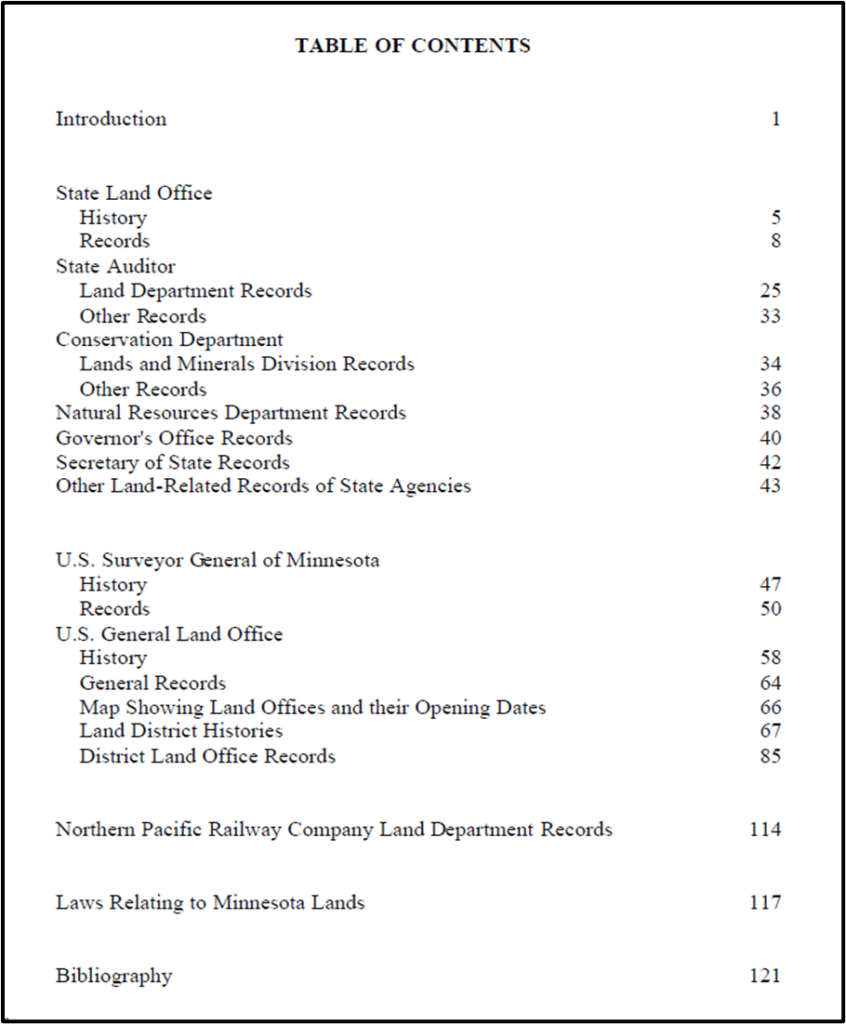Genealogists and education: never a slow day! Check out Conference Keeper.
I have no clue how anyone researching their family history can ever be bored or not able to learn something new. Classes, courses, seminars, webinars, institutes, and even social media are full of what we need. Someone on a social media site may post that they just attended an excellent presentation on a particular topic. A genealogical organization may post on its website about an upcoming seminar. One way to learn about many events, whether virtual, hybrid, or only in-person, is through Conference Keeper. Tami Osmer Mize is the Keeper and does an amazing job. Be sure your organization submits details. I noticed that a couple of organizations for which I am presenting webinars this spring have not submitted details to Tami. It’s free to do that. I will need to do that. (You can also see my schedule by clicking on Speaking at the top of this blog.)
I am able to pick any specific day/date and see the offerings from the U.S. and beyond. It will be clear about whether the event is free, has a fee, and the details on time, place, and more. Check it out yourself at https://conferencekeeper.org/. While on the site, sign up for the free weekly update email.





